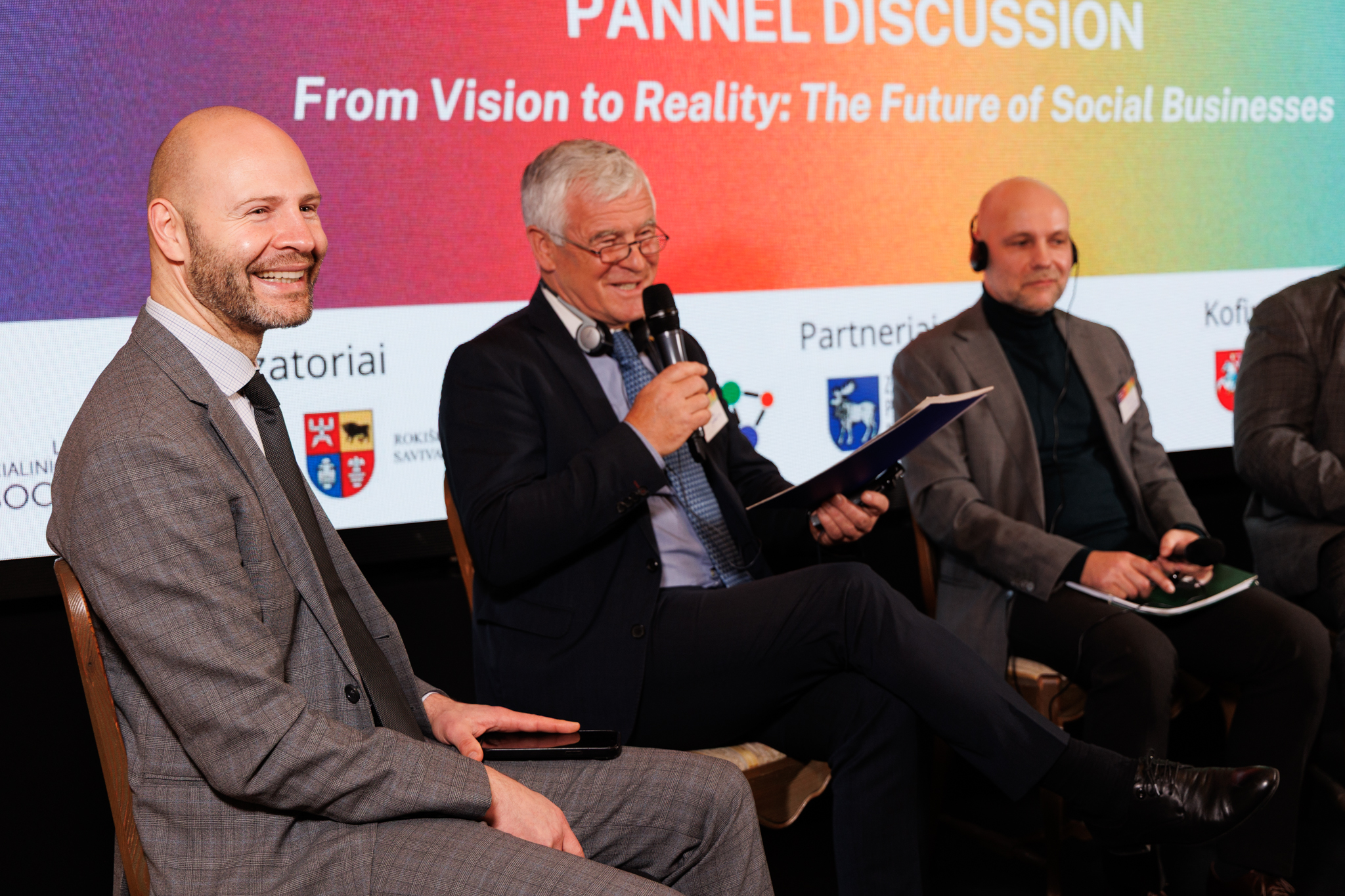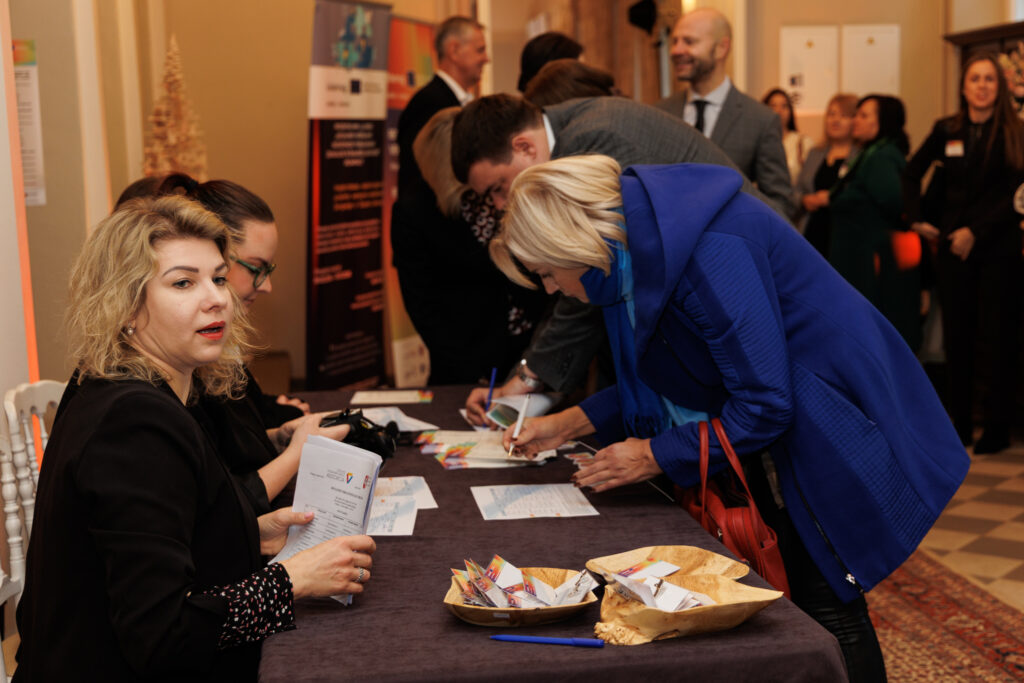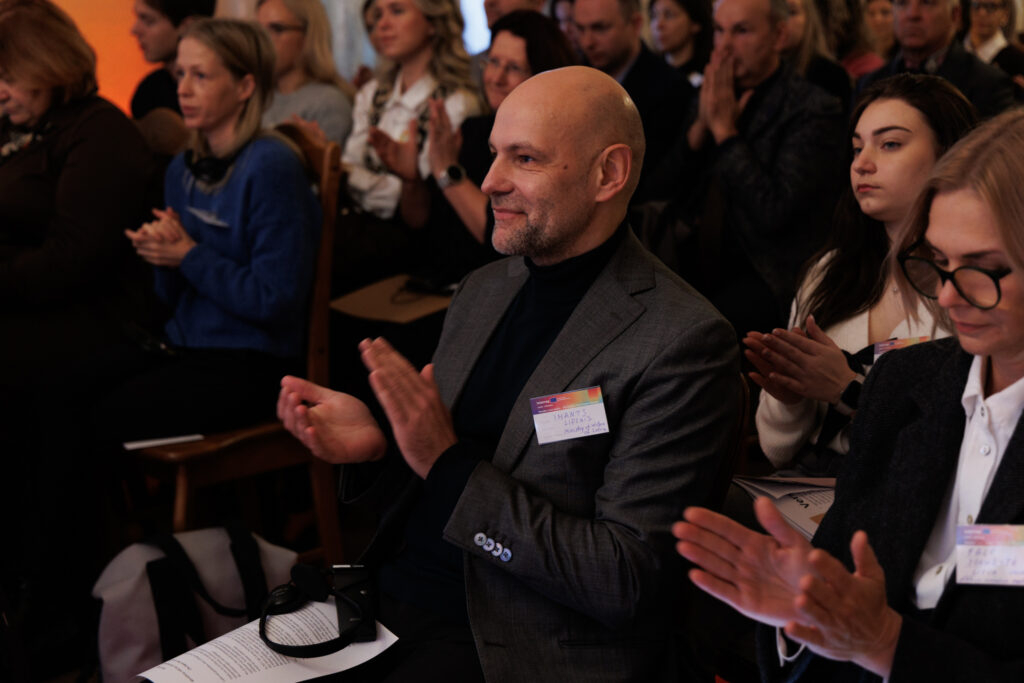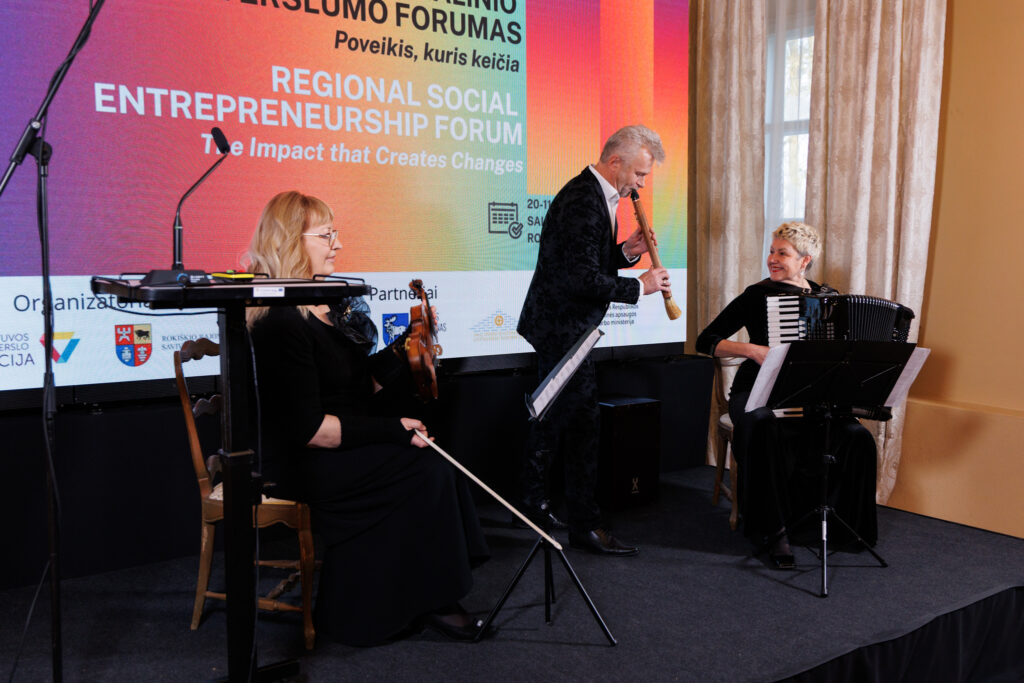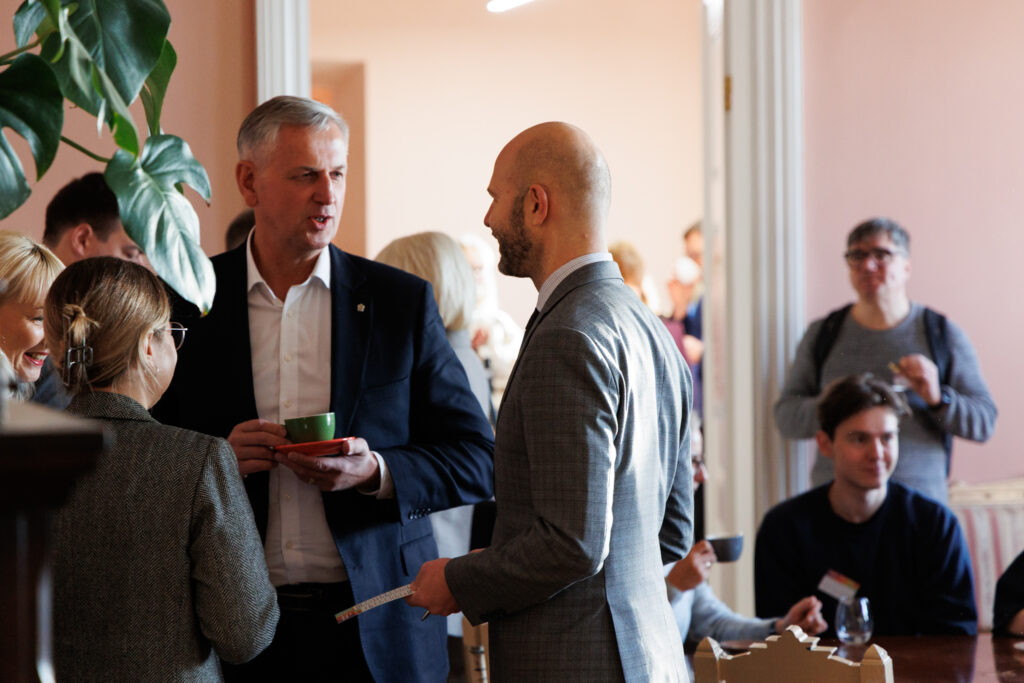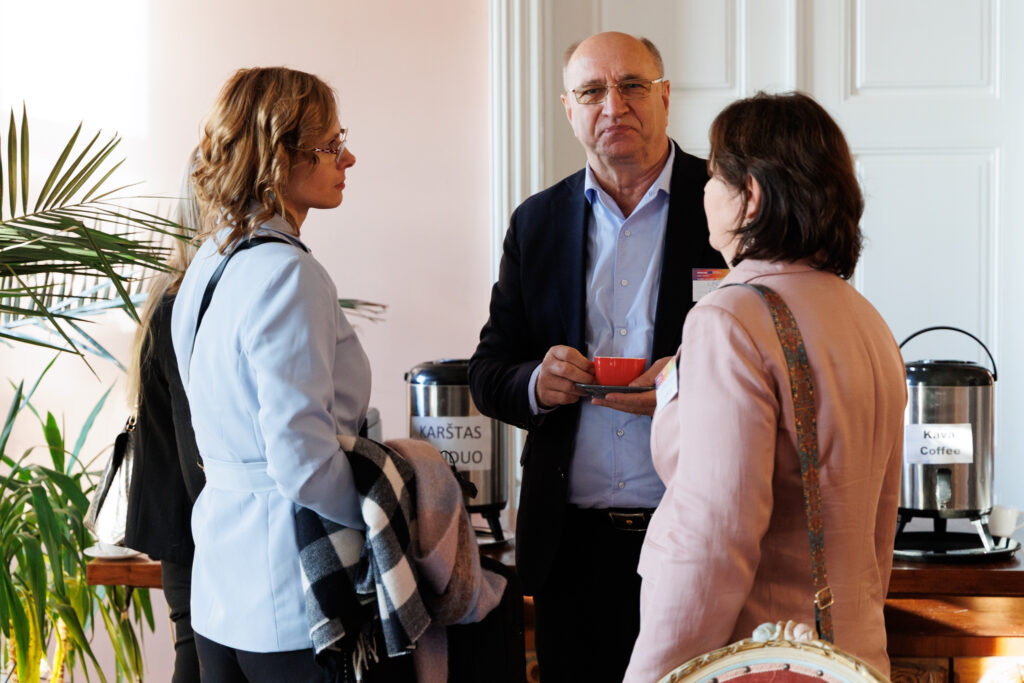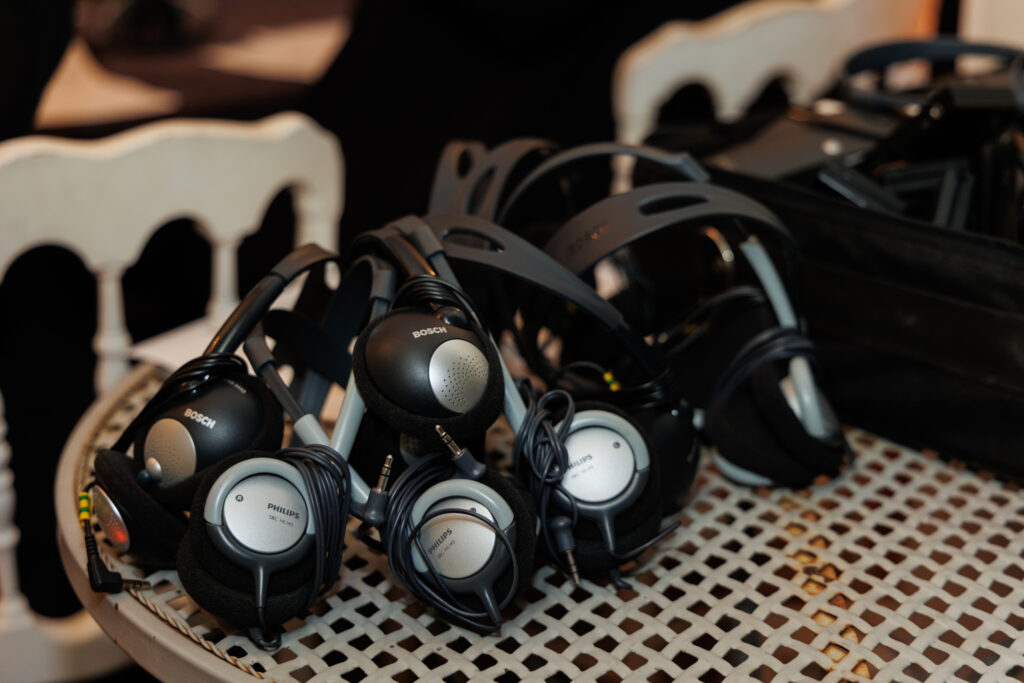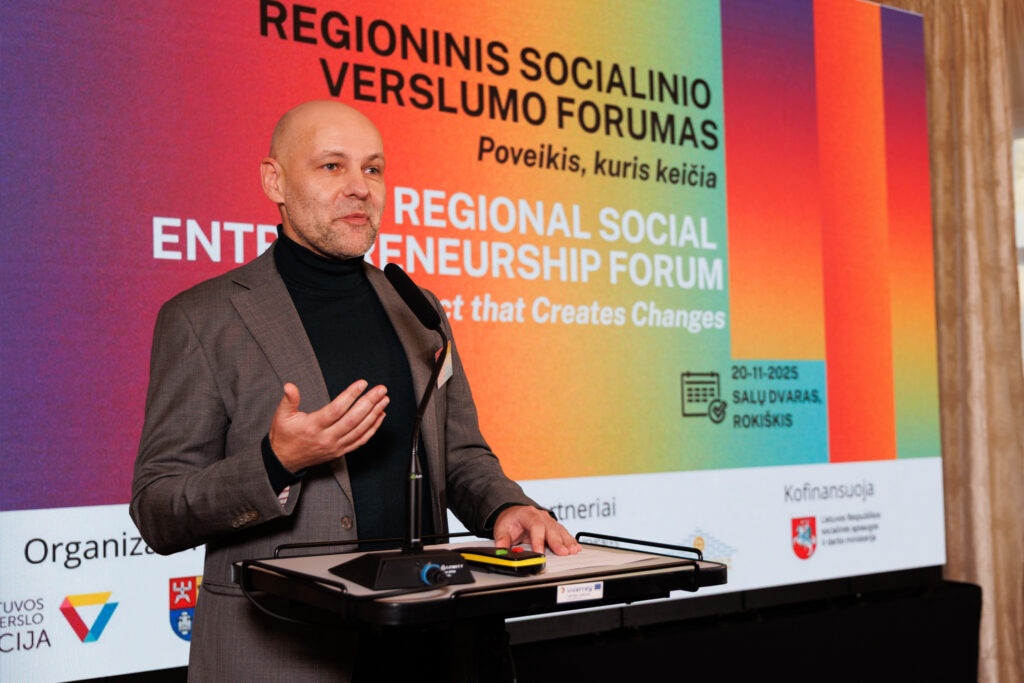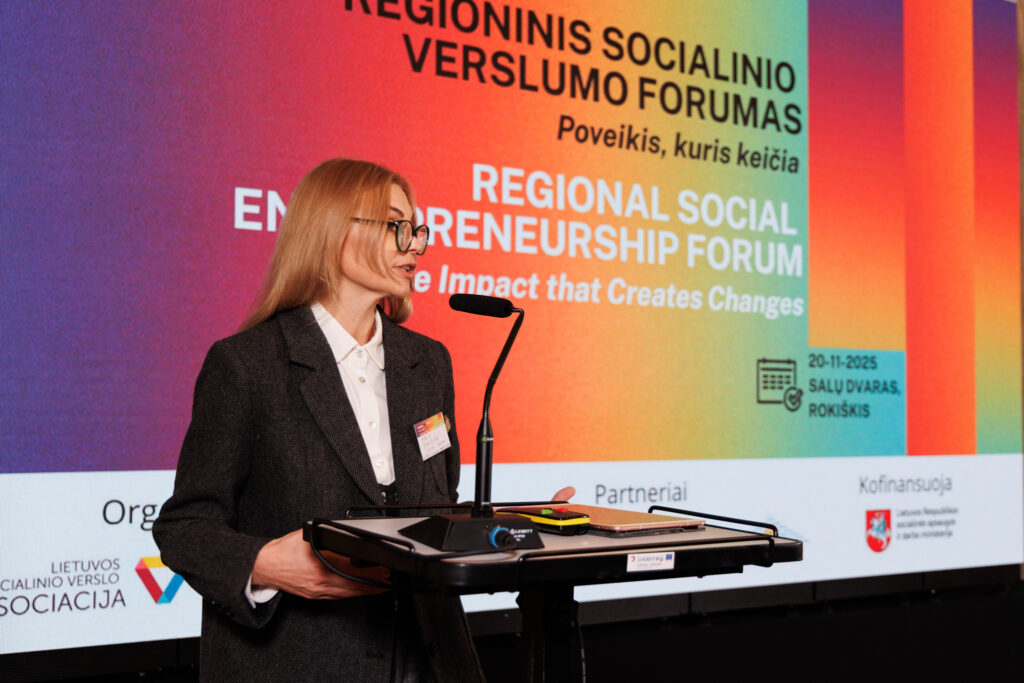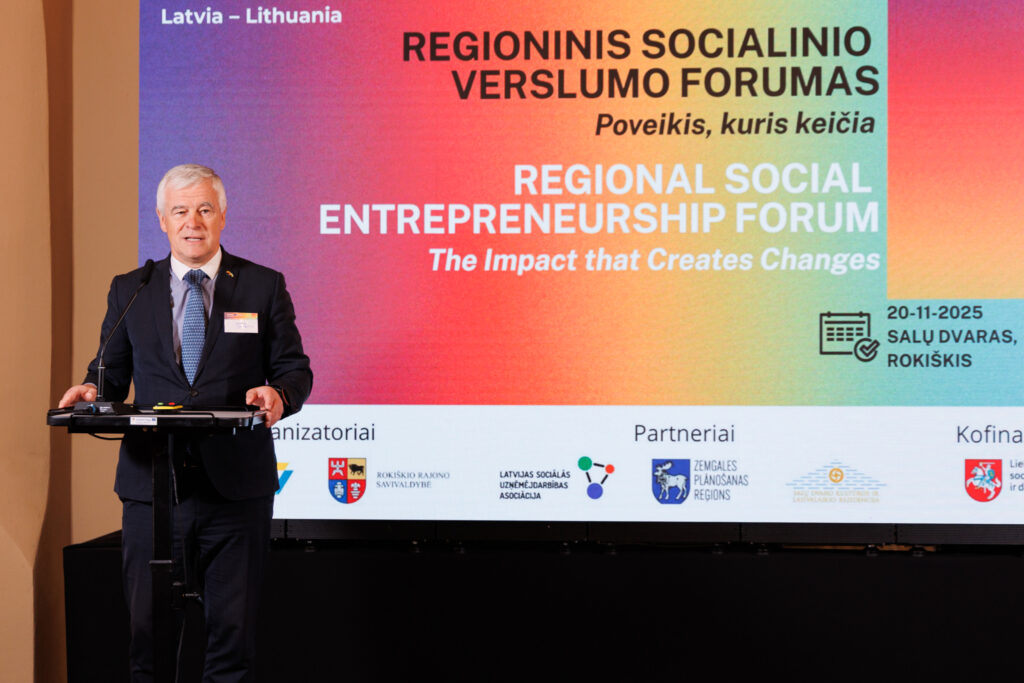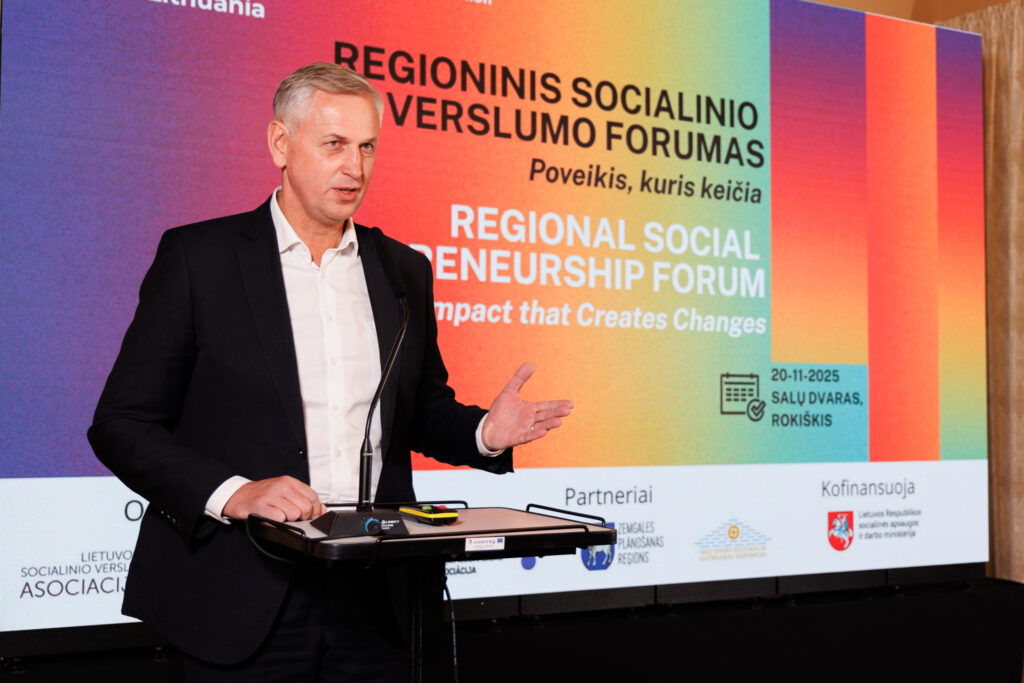Last week, on November 20, the Regional Social Entrepreneurship Forum “Impact That Creates Changes” took place at the Salos Manor Culture and Leisure Residence in the Rokiškis district. The event, organized within the framework of the “RE:IMPACT” project, brought together experts and practitioners from Lithuania and Latvia to discuss social entrepreneurship as a real instrument for change in the regions and forms of cooperation to address local challenges. The forum served as a significant milestone for all project partners, as a major work phase concludes in January, having established the foundations for unified social innovation development on both sides of the border.
At the opening of the forum, participants were addressed by guests and partners representing various levels of the social entrepreneurship ecosystem. Ramūnas Godeliauskas, Mayor of Rokiškis District, emphasized that this gathering goes beyond usual business, focusing on meaningful contributions to people and the community. The Mayor highlighted Rokiškis as a leader in this field in Northern Lithuania, evidenced by the active involvement of the local society. Participants were also welcomed by Leons Līdums, Chairman of the Development Council of the Zemgale Planning Region (ZPR), who delivered his speech in Lithuanian, affirming the unity between the neighboring countries.
Jonas Jarutis, Advisor to the Minister of the Economy and Innovation of Lithuania, emphasized that holding the forum in the region reflects the Ministry’s vision to pay greater attention to regions, committing to allocate 30% of investments to them. He pointed out that a social enterprise is a full-fledged business but with a “flavor” of social justice, combining profit-making with solving societal problems. Meanwhile, Imants Lipskis, representative of the Ministry of Welfare of Latvia, outlined significant changes in the sector’s legal framework – amendments to the Social Enterprise Law that would allow distributing up to 50% of profits in dividends, thereby promoting the attraction of private investors and the sustainability of the sector.
To implement national visions in real life, practical action in the regions is crucial. Ieva Zeiferte, ZPR Project Manager, and expert Sandra Grigorjeva reported on how social entrepreneurship is being strengthened in Zemgale. Within the “RE:IMPACT” project, extensive research was conducted, identifying 95 potential social innovators. A significant step in activating the sector was direct support for social innovators – workshops, consultations, and valuable experience exchange trips were organized. Additionally, in cooperation with experts and partners – the Social Entrepreneurship Association of Latvia – new teaching materials were developed and piloted in ten Zemgale schools. These are now available as a practical tool for educators to promote youth understanding of social entrepreneurship. To strengthen municipal capacity, workshops were organized and action plans for social entrepreneurship development were developed in all Zemgale municipalities. Expert Vita Brakovska introduced participants to the 11-step methodology used in this process, which helps structure work from resource mapping to result monitoring.
The afternoon session of the forum highlighted the role of social enterprises in solving local problems, creating new jobs, and strengthening community identity. Eglė Jokužytė, Head of the Lithuanian Social Business Association (LISVA), emphasized that social enterprises often feel “invisible,” therefore competent specialists are needed in municipalities to build dialogue. In turn, Regita Zeila, representative of the Social Entrepreneurship Association of Latvia, highlighted the uniqueness of social entrepreneurship and the human factor as the main unifying element, emphasizing the association’s role in strengthening the ecosystem.
Especially inspiring were the experience stories of entrepreneurs. Zane Dreismane (“Mājas TUVU”) shared her story of successfully combining a charity shop network and the event venue “Branku Brančotava” with a social mission – providing material and emotional support to families in difficulty and promoting youth engagement. Meanwhile, Kristers Vējš (“4 vēji”) introduced a cardboard packaging production facility that employs people with disabilities, helping them gain financial independence, including buying their own home and obtaining a driver’s license. Lithuania was represented by Diana Kietienė with the initiative “Gėris rankose,” which helps people with disabilities integrate into the labor market, while the social enterprise “Kita Mėnulio pusė” presented its activities in video format.
The closing session of the forum featured a multi-layered panel discussion combining national policy and municipal perspectives. Jonas Jarutis expressed conviction that social entrepreneurship will not disappear but will only develop, necessitating appropriate political regulation. Ilze Matusa, representative of Jelgava County Municipality, called for breaking ingrained stereotypes and not equating social entrepreneurship solely with social assistance. She emphasized that the municipality is a key player at the local level, so politicians need the courage and will to purposefully support this field. The forum concluded with the recognition that cooperation and innovation are the key to sustainable changes in the Baltic region.


